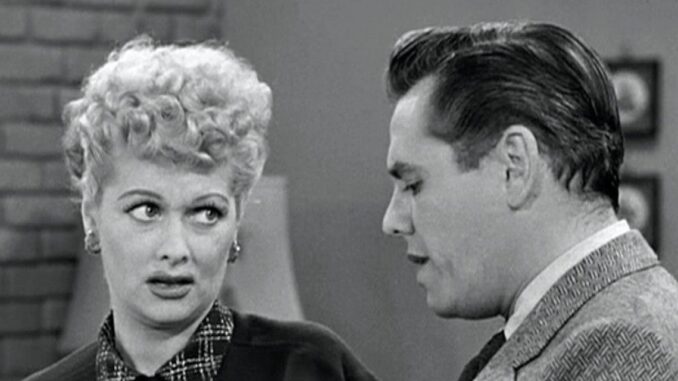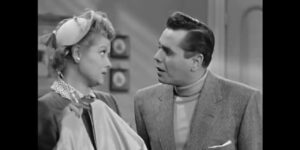
I Love Lucy: 10 Ways The Sitcom Broke Barriers
Introduction: A Show Ahead of Its Time
When I Love Lucy debuted in 1951, it wasn’t just another sitcom. It became a cultural phenomenon that paved the way for future television and challenged societal norms. From its innovative production techniques to tackling taboo subjects, the show’s legacy remains unmatched. But how did a seemingly simple comedy starring Lucille Ball and Desi Arnaz break so many barriers? Let’s dive into the top 10 ways I Love Lucy changed television forever.
1. The First Interracial Couple on Television
In the 1950s, seeing an interracial couple on screen was unheard of. I Love Lucy boldly showcased the marriage between Lucille Ball, a white woman, and Desi Arnaz, a Cuban-American. Their real-life chemistry translated seamlessly onto the screen, proving that love transcends race. This trailblazing move opened doors for more diverse representation in media.
2. Inventing the Multi-Camera Sitcom Format
Do you know why sitcoms feel so polished today? It’s thanks to I Love Lucy! The show pioneered the multi-camera format, capturing live audience reactions while maintaining high production quality. This method became the gold standard for sitcoms like Friends and The Big Bang Theory.
3. Syndication Changed TV Forever
Before I Love Lucy, reruns weren’t a thing. Lucille Ball and Desi Arnaz insisted on owning their show’s rights, leading to the concept of syndication. This decision not only made them millionaires but also revolutionized how TV shows are distributed, ensuring audiences could enjoy episodes long after they aired.

4. Tackling Pregnancy on Screen
In a time when even the word “pregnant” was considered scandalous, I Love Lucy didn’t shy away. When Lucille Ball became pregnant in real life, the show wrote her pregnancy into the storyline. It was groundbreaking to see a pregnant woman on TV, normalizing an everyday experience for viewers everywhere.
5. Lucille Ball’s Fearless Comedy
Lucy Ricardo was a tornado of chaotic, hilarious energy. Lucille Ball’s slapstick humor redefined what female comedians could do. From stuffing chocolates in her mouth to stomping grapes in Italy, her performances proved women could be as funny—and fearless—as their male counterparts.
6. A Business Empire Built by Women
Lucille Ball wasn’t just the star; she was also a trailblazer behind the scenes. After her divorce from Desi Arnaz, she became the first woman to run a major Hollywood studio, Desilu Productions. This studio brought us hits like Star Trek and The Andy Griffith Show. Talk about breaking the glass ceiling!
7. First Sitcom Filmed in Front of a Live Audience
Ever notice how laugh tracks don’t quite feel the same as real laughter? I Love Lucy was the first sitcom filmed in front of a live audience. This added authenticity to the humor, making viewers feel like they were part of the action.
8. Showcasing Cultural Differences
Lucy and Ricky’s relationship wasn’t just about laughs—it also highlighted cultural differences. From Ricky’s accent to his Cuban customs, the show subtly introduced viewers to a more diverse world, fostering acceptance through humor.
9. Setting the Stage for Female Leads
Before Lucy Ricardo, women on TV were often relegated to secondary roles. Lucille Ball changed the game, becoming the focal point of the show and proving that female-led comedies could dominate the ratings. Without Lucy, we might not have characters like Mary Tyler Moore or even Liz Lemon.
10. Pioneering Product Placement
Ever wonder where modern advertising techniques started? I Love Lucy embraced product placement before it was cool. From endorsing Philip Morris cigarettes to Vitameatavegamin, the show seamlessly blended comedy and advertising, shaping how brands interact with entertainment.
How ‘I Love Lucy’ Continues to Inspire
Even decades after its original run, I Love Lucy remains a blueprint for sitcom success. Its willingness to push boundaries—both on-screen and off—solidified its place in TV history. Every laugh, every groundbreaking moment, every “Lucy, you got some ‘splainin’ to do!” reminds us why the show remains iconic.
Conclusion: A Legacy That Lives On
I Love Lucy wasn’t just a sitcom; it was a revolution. By breaking barriers and challenging norms, it redefined what television could be. From its groundbreaking portrayal of love and diversity to Lucille Ball’s fearless leadership, the show’s impact echoes through every modern sitcom. It’s safe to say that without Lucy, television wouldn’t be the same.
FAQs
1. Why was Lucille Ball considered a trailblazer in television?
Lucille Ball broke barriers as a female comedian, actress, and studio executive. She proved women could dominate both in front of and behind the camera, paving the way for future generations.
2. What made Ricky and Lucy’s relationship revolutionary for TV?
Ricky and Lucy’s interracial marriage was the first of its kind on television, showcasing love that transcends race and culture during a time of segregation.
3. How did I Love Lucy influence sitcom production?
The show introduced the multi-camera format and live audience filming, setting a new standard for sitcoms. This technique is still used in modern-day productions.
4. Why is I Love Lucy still relevant today?
Its groundbreaking themes, humor, and relatable characters make it timeless. The show’s influence is evident in modern sitcoms and its continued popularity in syndication.
5. What was Lucille Ball’s biggest contribution to the entertainment industry?
Beyond her comedic genius, Ball became the first woman to own and run a major studio, Desilu Productions, which produced iconic shows like Star Trek.
I Love Lucy isn’t just a relic of the past; it’s a masterclass in breaking barriers and redefining entertainment. Every laugh it delivered paved the way for a more inclusive, innovative, and fearless television landscape.